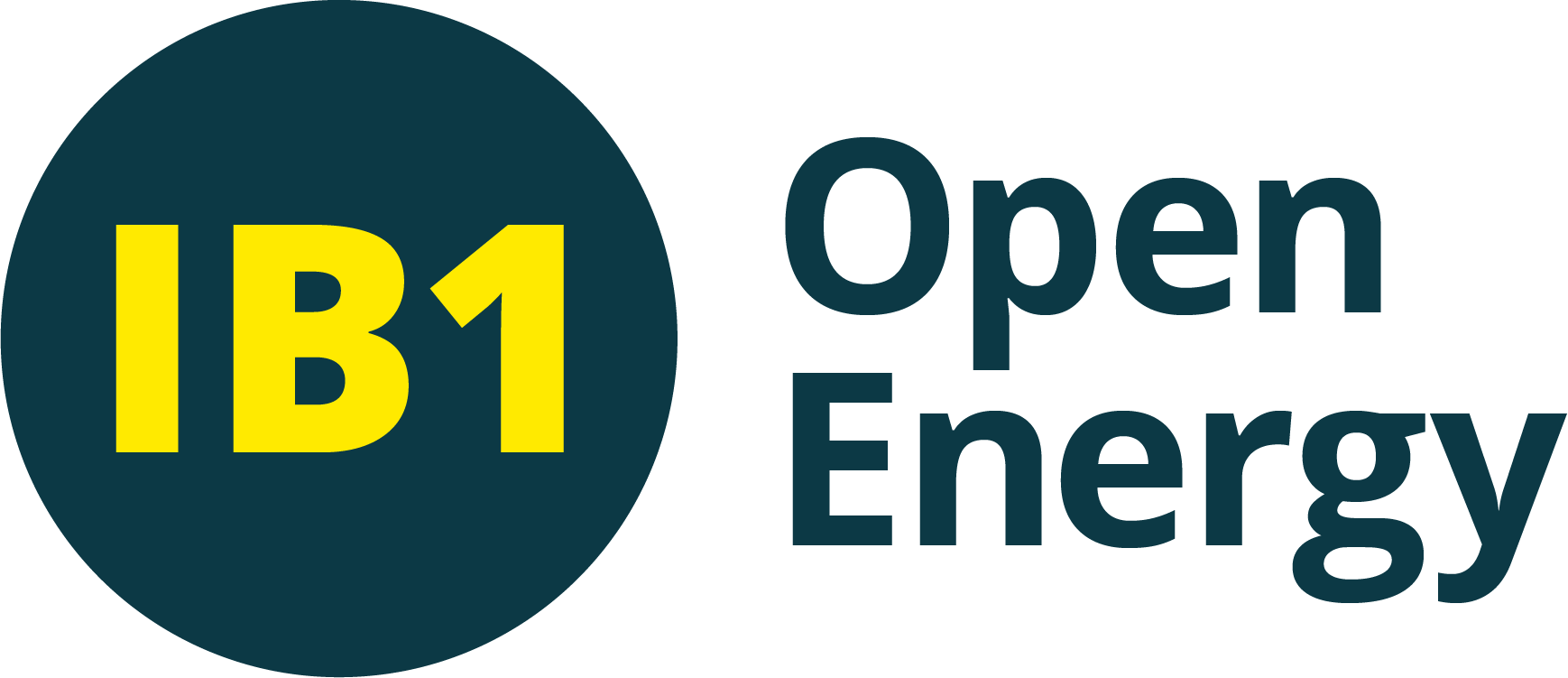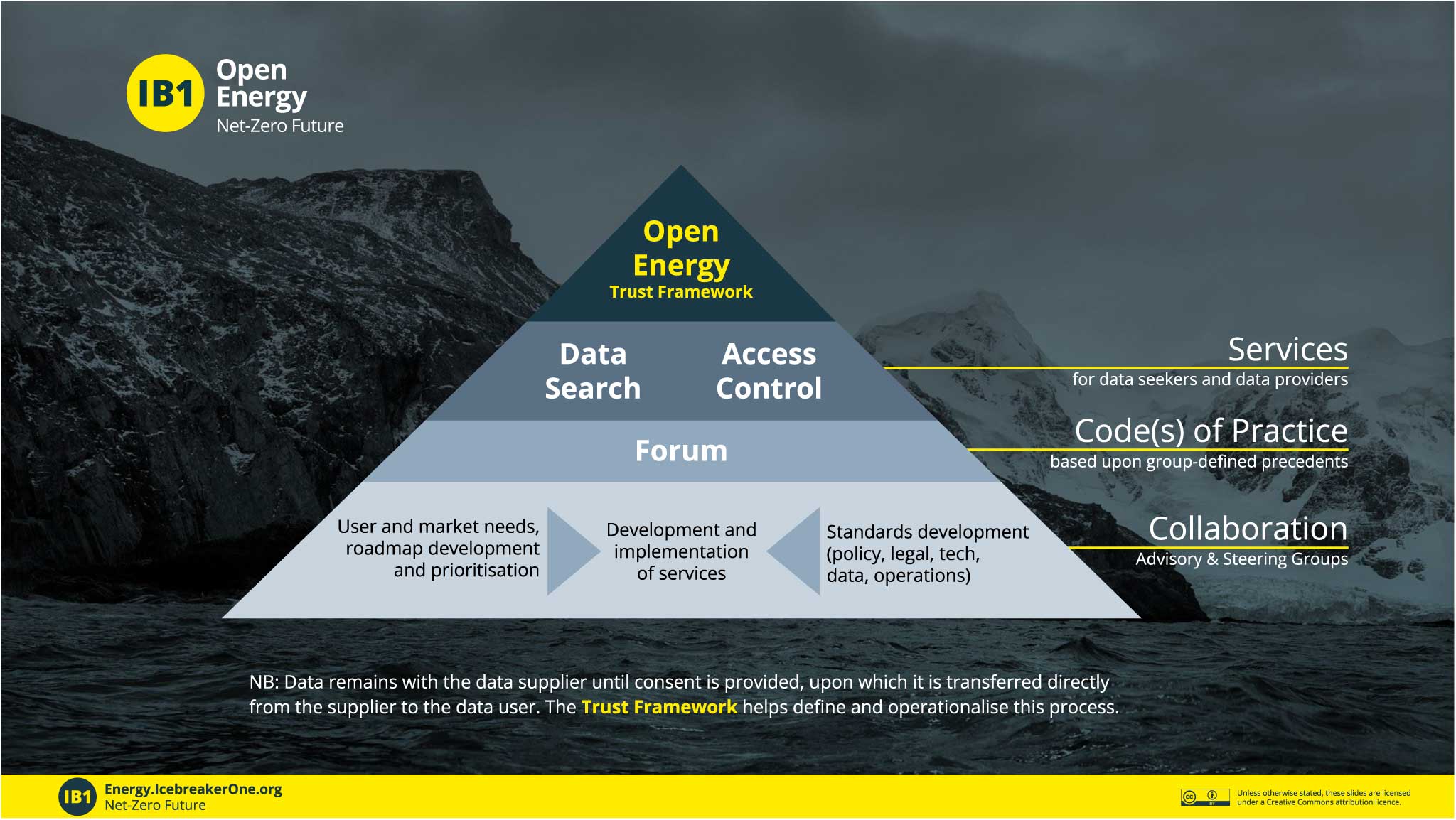The Open Energy programme makes it easy to search, discover, access and securely share energy data. It covers both Open Data and commercial Shared Data where access requires control.
Open Energy services include Search and Access Control, which are co-designed through an industry Forum.
Open Energy brings together domain experts across the ecosystem, including large and small companies, regulated and unregulated actors, and the public sector, into Industry Advisory Groups and a Sector Steering Group to help shape the development of its services.
The live service is at https://openenergy.org.uk
Open Energy value points — why you should get involved
Strategic value
- Set and be at the forefront of UK-wide secure energy data standards
- Set the bar for data leadership in the industry
- Address market needs at sector-scale
- Deliver Net Zero more quickly
Operational value
- Understand and communicate use-cases that demonstrate value & catalyse innovation
- Save £M’s on digitalisation through the use of open standards
- Reduce friction in supplying both open and commercial data to the whole market
- Reduce friction in finding, accessing and using data from third parties for internal use
Addressing
- both Open data and Commercial data value propositions
- internal data silos – unlock internal data flow & efficiencies
- internal and external value as a data provider and a data user
- regulatory directions from Ofgem and RIIO-ED2 quickly and efficiently
Reports & outputs: https://energy.icebreakerone.org/reports/
For more background on the UK SBRI MEDA competition, including our output reports and presentations, please see here https://energy.icebreakerone.org/background/
If you have any questions, please get in touch at openenergy@icebreakerone.org.
Who are we?
Icebreaker One is a non-partisan non-profit. It convenes domain experts from across industry to enable the discovery of, and access to, energy data (whether commercially Shared Data or Open Data).
Its team includes a combination of experts in data governance, energy and systems, including the architects behind the Open Data Institute and the Open Banking Standard. It is focused on helping align everyone around data interoperability and helping to operationalise this to create an open marketplace for energy data, and shape the development of an Open Energy Standard.
About Open Energy
Energy generation and supply are core to everything we do. However, damage to the environment and changes in the ways energy is created and used means that all over the world £billions are being invested in modernising energy systems.
What’s changing?
We used to generate all our electricity in the UK from a few big power stations. These fed into the national grid to make sure there was enough electricity for everyone, but not too much so that things don’t explode. This energy feeds homes and businesses, hospitals and schools.
We will have millions of things generating electricity (e.g. solar panels, wind turbines), so the job of getting it all balanced properly across our national grid gets really complicated. Some of these are in the sea (wind turbines) and some are in our homes (e.g. solar panels).
At the same time, we are electrifying all of our transport (cars, buses, trains, trucks), so not only millions of homes and businesses will use electricity but millions of vehicles too. A big chunk of our national electricity will be driving around.
It’s complicated
We need to make sure that the lights stay on and we need all the energy used to be green. This means millions of things talking to millions of other things to make sure that the energy flows in the right amount, at the right time, with the right people getting paid. It needs to be safe and reliable, affordable and simple.
It’s all about the data
At the heart of this energy revolution is data. Data and software will be needed to build systems that can continuously automate balancing supply and demand. With millions of systems, our infrastructure will have to ‘self-heal’ (e.g. a hospital’s lights need to keep on even if it’s cloudy).
It’s all about open
To enable all these millions of systems to talk to each other (all the time), they will need to be open in different ways. Some will need to be open to access and control by each other (but not by you!), others may need to be open to your street so that everyone can work out if they should put in another solar panel. We use ‘openness’ in this context to cover both openness to access and share (where payment or control may be needed), as well as open licensing (where things are free for anyone to access, use and share).
It’s about you?
Over the coming years, we need a whole generation of people working on making sure that our energy systems work for everyone, and don’t destroy the planet. Is this you?
Why call it ‘Open Energy’?
There are many reference points:
(*CC-BY, MIT or equivalent)
- It opens up the market around energy data
- It enables open interoperability and cohesion across energy ecosystems
- It is an open standard: the standard itself is licensed openly*
- It mandates Open Data for information that should be public
- It mandates open access to Shared Data for private and confidential data
- It mandates open APIs for shared & common technical implementations
- It’s for the energy sector and those using energy data
To learn more about our market-design approach for data sharing, please see:

